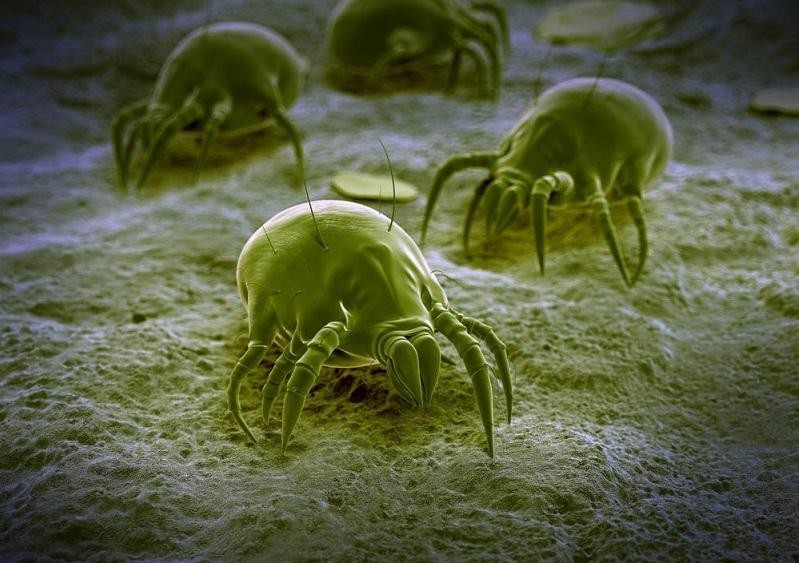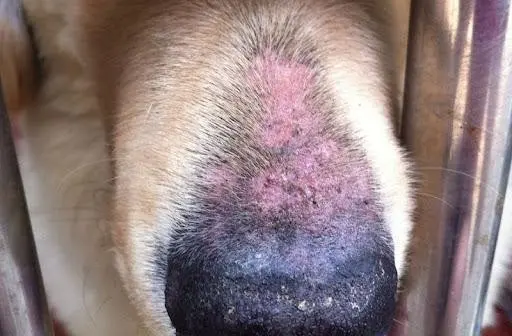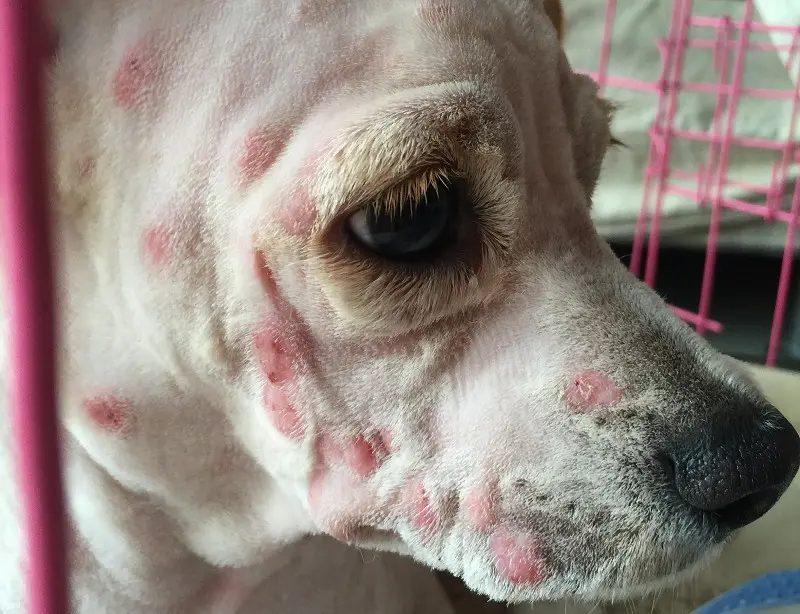Is Your Dog Itching Nonstop? Common Skin Problems Every Pet Owner Should Know
The incidence of skin diseases in dogs is high, accounting for about 10–20% of clinical visits. Canine skin diseases are caused by a variety of factors, often present with complex symptoms, and tend to be chronic, making diagnosis and treatment challenging. Here is a brief overview of several common skin conditions seen in clinical practice:
1.External Parasites: Flea, Lice, and Tick Infestations
Fleas, lice, and ticks are the most common external parasites found on dogs. They bite the dog's skin and feed on blood, causing intense itching, rough and messy hair, and, in severe cases, generalized hair loss and anemia. Their saliva and excreta can also trigger allergic dermatitis. Diagnosis is primarily based on finding live parasites on the dog's body, flea dirt at the hair roots, or lice eggs, combined with sudden itching, licking, and vocalizations. Treatment includes topical insecticidal solutions, oral flea medications, and subcutaneous injections of ivermectin. Anti-allergy and anti-inflammatory treatments should also be provided. Regular environmental cleaning, periodic disinfection, and thorough vacuuming of floor cracks and corners to remove eggs are essential preventive measures.
2.Mite Infections: Demodectic Mange and Sarcoptic Mange
(1) Demodectic Mange (Demodicosis):
Infection primarily manifests as inflamed hair follicles, pustules, and hair loss. It usually begins around the eyes, upper and lower jaws, and lips without initial itching but can later spread to the neck, limbs, abdomen, and inner thighs. Severe cases show red, swollen skin, hair loss, seborrhea, scaling, small abscesses, thickened skin, and pigmentation.

(2) Sarcoptic Mange:
Sarcoptic mange mainly causes severe itching, hair loss, thickened skin, and pigmentation. Diagnosis relies on microscopic examination of skin scrapings to identify mites or larvae. It is important to note that a small number of demodex mites may be present even in healthy dogs, so diagnosis must be combined with clinical symptoms. Severe generalized demodectic mange may be linked to genetic susceptibility, and such dogs should not be used for breeding. Treatment primarily involves subcutaneous ivermectin injections (note: Collies are highly sensitive and should not receive ivermectin), systemic anti-inflammatory therapy, and medicated anti-mite baths. Breeds like Shar-Peis, Dachshunds, and Pugs are more genetically prone to mite infections and require special attention.

3.Fungal Skin Infections (Ringworm)
Commonly referred to as "ringworm," fungal infections are the most frequently seen skin disease in dogs, mainly caused by Microsporum canis and Microsporum gypseum. It is a contagious disease that can be transmitted between animals and humans. Puppies, elderly dogs, undernourished, and immunocompromised animals are more susceptible. Typical symptoms include hair loss and circular scaly patches, though some cases show no hair loss or scaling but present with papules, pustules, erythematous patches, or nodules. Due to the variability of symptoms, it can easily be confused with other skin conditions. Diagnosis is based on microscopic identification of fungal spores, Wood’s lamp examination, or fungal culture.

Fungal Treatment:
Treatment involves both topical and systemic medications. Common topical agents include clotrimazole, ketoconazole, and antifungal ointments; systemic treatments may include oral antifungal tablets and medicated antifungal shampoos. Key points in treatment:
1.Prevent the spread and transmission to other animals or humans.
2.Continue medication for 1–2 weeks even after symptoms have completely resolved to prevent relapse.
3.Disinfect the environment thoroughly. Dog utensils and kennels can be cleaned with 0.5% lime sulfur solution, 0.5% chlorhexidine solution, or flame-sterilized for metal cages.
4.Bacterial Skin Infections (Pyoderma)
Most cases are caused by Staphylococcus intermedius. Clinically, it presents as pustular dermatitis, small pustules, folliculitis, skin fissures, and dry pyoderma. Diagnosis is based on skin smears, bacterial culture, and antibiotic sensitivity testing. Treatment involves selecting appropriate topical antimicrobials and systemic antibiotics according to test results. Common topical treatments include erythromycin-metronidazole solution, gentamicin solution, and mupirocin ointment. Systemic antibiotics such as lincomycin, Baytril (enrofloxacin), cephalosporins, or oral medications like cephalexin and amoxicillin-clavulanate may be administered. Breeds such as German Shepherds, Dalmatians, Shar-Peis, Great Danes, and Dachshunds are more susceptible.
5.Allergic Skin Reactions
Allergic reactions are divided into acute and chronic types.
Acute allergic reactions often occur immediately after oral or injectable drug administration or consumption of certain sensitive proteins, leading to facial and limb swelling, systemic rashes, intense itching, and in severe cases, rapid breathing, shock, or even death.
Chronic allergic reactions may present as generalized red bumps, papules, itching, hair loss, and sometimes chronic otitis externa (ear redness and discharge) accompanied by vomiting or diarrhea. Clinically, chronic or localized allergic reactions are more common and may be caused by:
●External parasites (lice, fleas, ticks) causing allergic reactions to their mouthparts, saliva, or excreta.
●Mite allergies.
●Contact allergies from dust, pollen, plants, synthetic fabrics, or even some shampoos.
●Food allergies.
Since allergy triggers are complex and difficult to diagnose, the general approach is to eliminate all suspected allergens (including foods), treat external parasites, and use anti-allergy and antipruritic medications such as dexamethasone, prednisone, or chlorpheniramine. Choosing hypoallergenic foods, such as Hill's prescription diets, is also recommended.
In addition to the above-mentioned treatment recommendations for canine skin diseases, regular disinfection and prevention are equally important. Using Roxycide Disinfectant weekly to disinfect kennels, dog toys, and indoor environments through spraying, misting, or soaking can effectively help prevent canine skin diseases. Routine disinfection plays a crucial role in maintaining the overall health of dogs.





